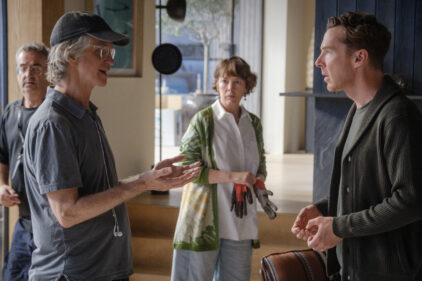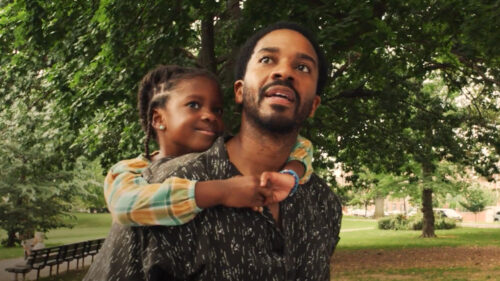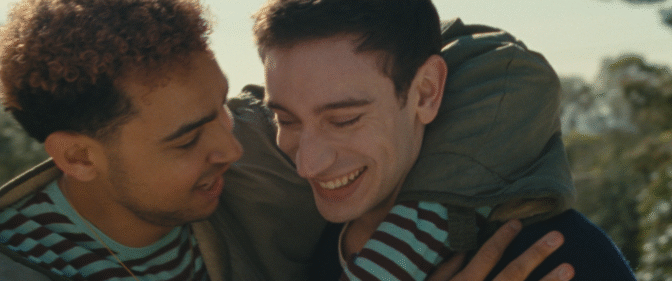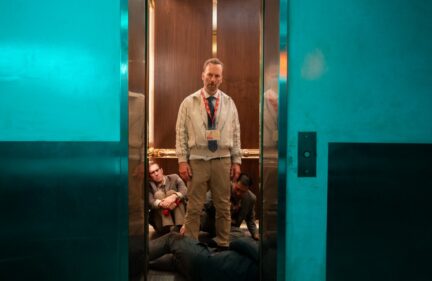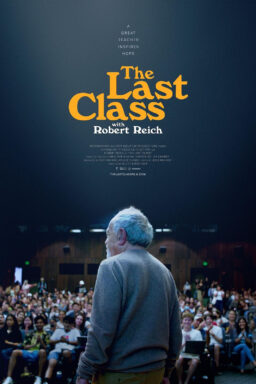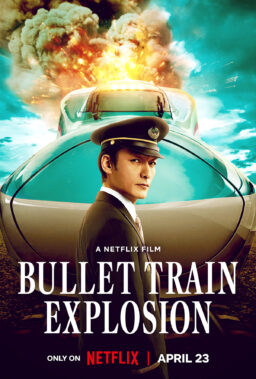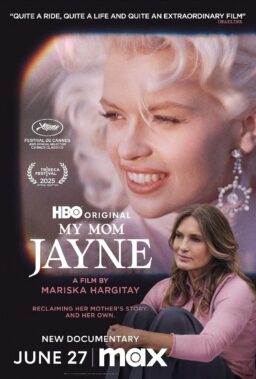Elisabeth Shue played the girlfriend of “The Karate Kid.” And the girlfriend who got marooned in time in the second and third “Back to the Future.” And the baby-sitter in “Adventures in Babysitting.” And Tom Cruise’s girlfriend in “Cocktail” (Leonard Maltin wrote: “Shue is cute, but that can’t redeem the junior-high-school-level dramatics.”) Nothing in her 10-year career to date would even remotely suggest her for the role of a Las Vegas hooker who falls in love with a man who has come to town to drink himself to death.
Mike Figgis, who directed “Leaving Las Vegas,” told me he auditioned Shue for an earlier film, couldn’t use her that time, but remembered her because he sensed a darker side to her personality. When this role came up, he said, he thought of her immediately.
“Aren’t we all a little that way?” Shue said, when I asked her about what Figgis said. “I think when I was younger, I didn’t know how to deal with those two sides of my personality. You’re constantly trying to be good, in some way, to your father or the father figures in your life. I think that’s probably why I played so many good roles – because that was who I pretended to be, while I was getting away with what I was really doing in my life. When you grow up and become a woman, you’re finally accepting yourself and not trying to hide.”
This was the day after the Toronto Film Festival premiere of “Leaving Las Vegas” (opening Friday at theaters nationwide). In the film, Nicolas Cage plays a man who loses his family and comes to Vegas to die, and Shue plays the hooker who falls in love with him at that stage in his journey. It’s like a love story crossed with operatic tragedy.
Shue said she talked with some Vegas prostitutes in preparing for the role, and is grateful to them for telling her “what it’s really, really like.” In the movie, she and the Cage character have no sex life – apart from one crucial scene – and yet it is a love story.
“What the women in Vegas explained to me,” she said, “is that you can turn somebody on and feel nothing for them, nothing. That’s how you have power over them. You’ve been victimized by your past, and that means you start to numb out on intimacy. That’s why I feel this movie’s a fable; I think it would probably be impossible for somebody in that world to fall so deeply in love with somebody so immediately. As for the sex part – for her to have sex with him is too confusing and for him, it wasn’t about that.”
Throughout the movie, Figgis cuts to closeups of Shue in a reflective, self-analytical monologue, as if she’s in a therapy session. It’s a reminder of a similar technique used for Jane Fonda’s prostitute character in “Klute.”
“Mike Figgis was actually my therapist,” Shue said. “We didn’t do those scenes necessarily knowing they were going to be in the film. It was the first day of shooting, and we spent all day long, just sitting there, talking.” She smiled. “Being in therapy as your character kind of focuses you for the rest of the shoot. I was so thankful those scenes were in there because it really gives her a voice which she wouldn’t have had otherwise. It helps her to explain herself.”
For Shue, “Leaving Las Vegas” is a career-defining role, a breakthrough that releases her from the typecasting of playing sweet, harmless young women, and opens up serious roles for her. If it is true that no one would have thought of her for such a role, it is also true that, after seeing the movie, few people will be able to imagine anyone else in it.
“In a lot of ways,” she said, “I feel like I was rescued by this script, by Mike and Nic. You could never do this kind of work without that kind of support, and that’s what so sad, that there aren’t a lot of experiences like this.”
For Shue, Cage and Figgis and their small crew, making the movie on a small budget in 16 mm. was a way of buying freedom, since “Leaving Las Vegas” would obviously not have been improved by the input of countless middle-level studio executives suggesting ways to dumb down the plot and cheer up the action.
“The beauty of working in 16 mm. is that the camera is so mobile, so easy to use,” Shue told me. “You’re not waiting for the camera; the camera is following you. There was so little time in between setups. There was this kind of a guerrilla nature about it. There was an intensity in the pace that really helped the intensity of the feelings.”
In other words, I said, you’d be walking down the street, playing a scene with Cage, and there weren’t any police there, or barricades, or crowd control? It’s just you guys jumping out of a van and filming it?
“Yeah. There was no crowd control. None. It was all just so low key that people just didn’t bother. One good thing about Las Vegas is everyone has had a few drinks, and they’re all concerned about how much money they’re losing, so they weren’t really focused on us at all.”
But inside some of the casinos you had to get permission, I suppose.
She laughed at that, and said they shot interiors in small casinos in outlying towns. “They wouldn’t let us in the Las Vegas casinos. Because, of course, we all know there aren’t any prostitutes or alcoholics there.”

